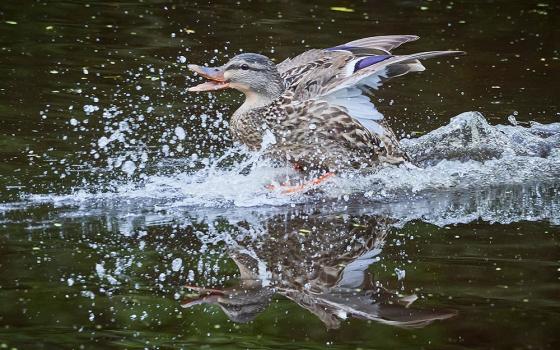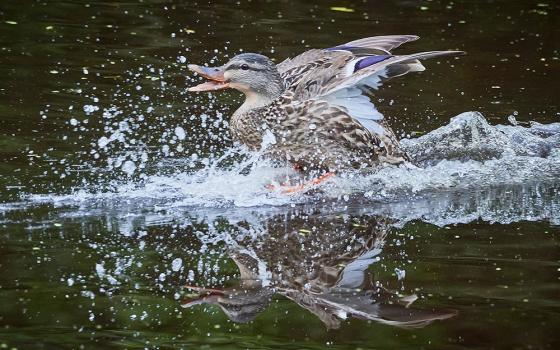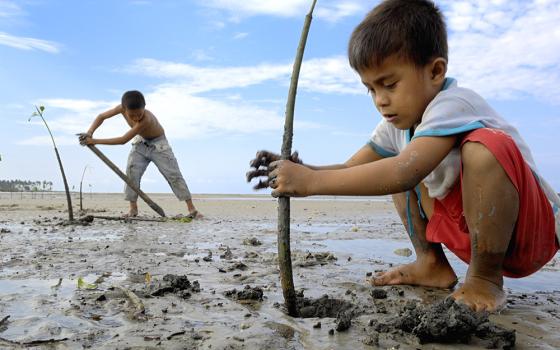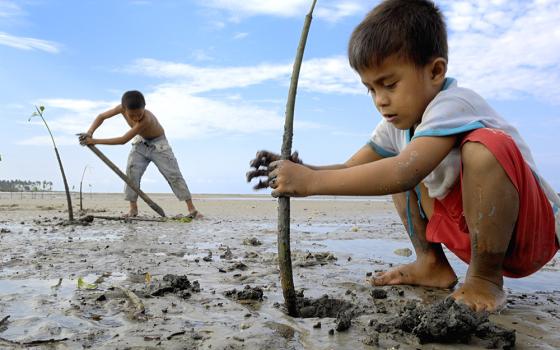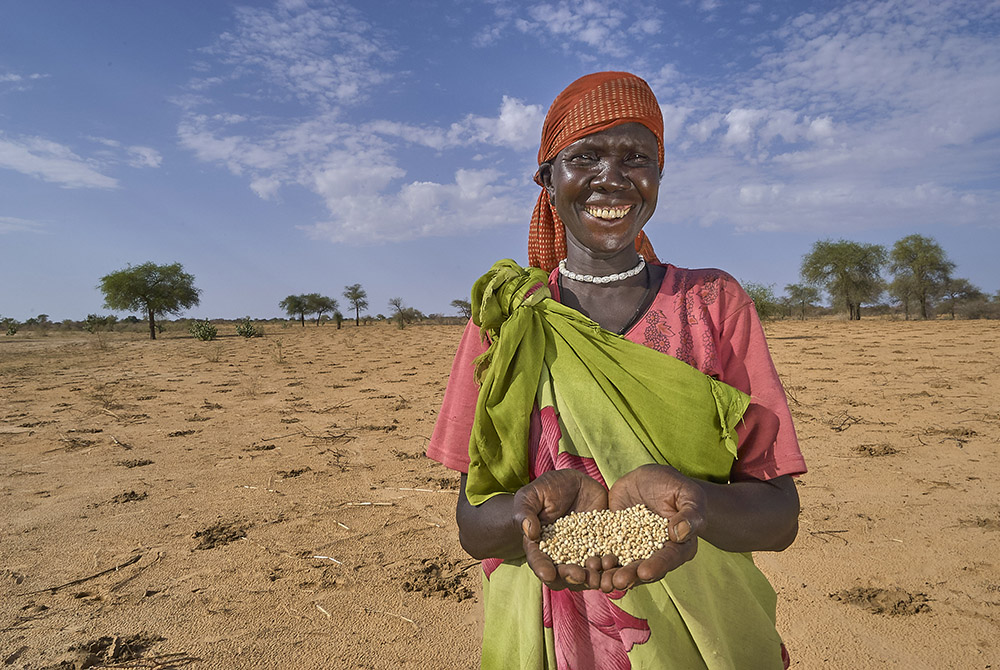
Adel Dut displays sorghum seeds she is planting amid drought and war. (Paul Jeffrey)
Editor's note: This Season of Creation, join award-winning photographer Paul Jeffrey for "Lens on Creation" as he examines the world through the lens of his camera and his faith. Sign up here to receive Jeffrey's reflections in your inbox every Monday, Wednesday and Friday from Aug. 31 to Oct. 4.
Adel Dut was chased from her home by fighting in Sudan's Darfur region, but a church agency gave her some sorghum seeds to plant outside the village of Ferdous, where she lives in a camp for displaced families.
The conflict in Darfur was dubbed by some as the first climate war. While conflicts had long existed between nomads and settled farmers in the region, long-term drought and the expansion south of the Sahel — brought on by climate change — pushed the two feuding groups into closer proximity. With the government providing guns to one side, the fight over land soon took an even deadlier toll.
Amid the violence, farmers like Dut did what Jeremiah counseled centuries before, when hope grew dim in his world. She planted seeds. Despite the drought and the fighting, she put seeds in the ground, and it transformed her. When I met her, she didn't act like a victim. She was proud that she could heal a little corner of her homeland by planting seeds.
When we become overwhelmed by violence in the world around us, we would do well to remember Dut.
For reflection and action:
The coronavirus pandemic has upended our personal and community lives, changing the way we live, worship and interact with one another. Many people feel isolated, stressed and alone. What seeds can we plant to help transform this desert experience into a life-giving garden of hope?
[Paul Jeffrey is a founder of Life on Earth Pictures and lives in Oregon. You can follow him on Instagram.]
Advertisement



